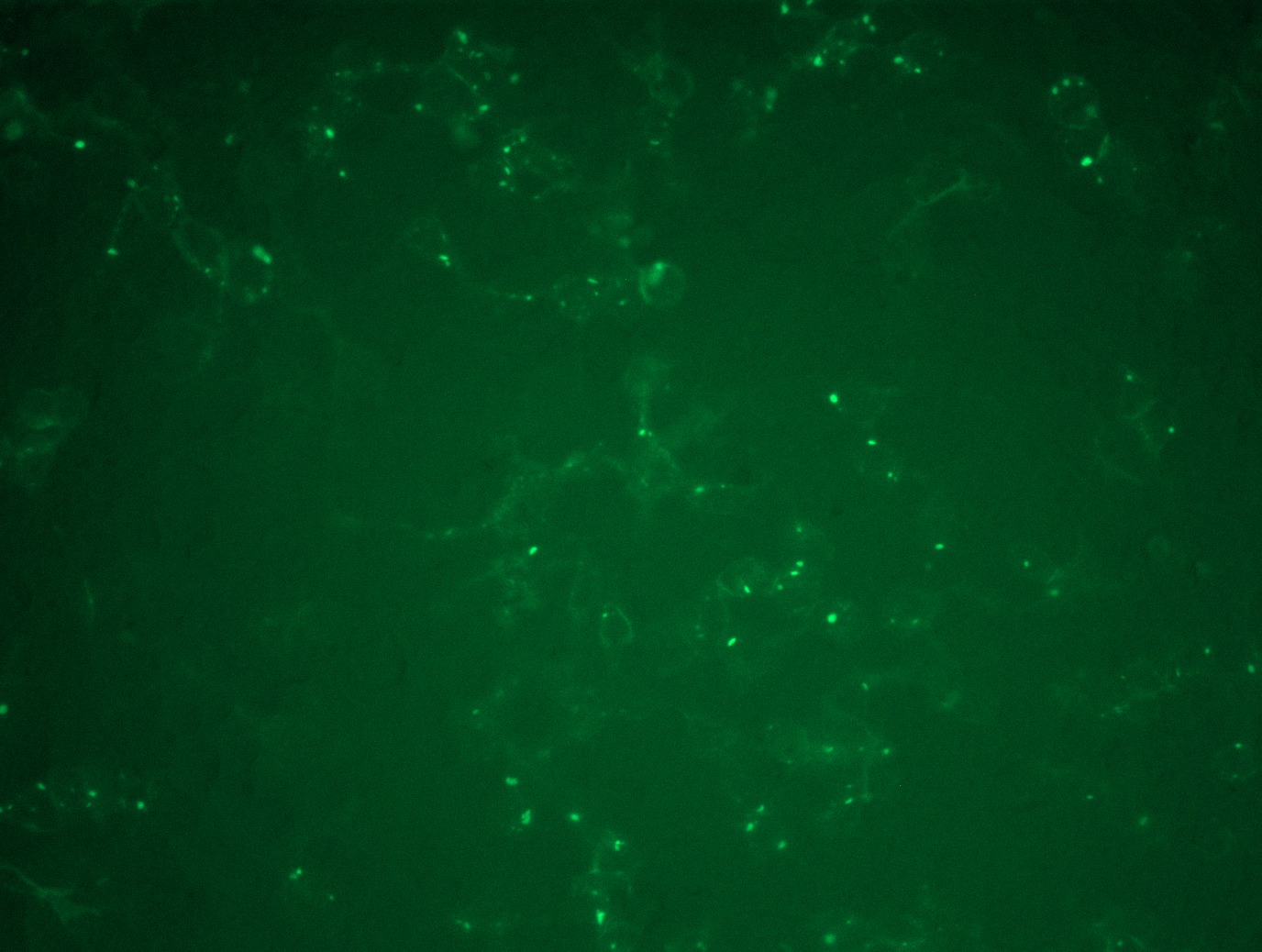PCDH10 (NM_020815) Human Tagged ORF Clone Lentiviral Particle
CAT#: RC214524L4V
- LentiORF®
-

Lenti ORF particles, PCDH10 (mGFP-tagged) - Human protocadherin 10 (PCDH10), transcript variant 2, 200ul, >10^7 TU/mL
Frequently bought together (2)
Other products for "PCDH10"
Specifications
| Product Data | |
| Type | Human Tagged ORF Clone Lentiviral Particle |
| Tag | mGFP |
| Symbol | PCDH10 |
| Synonyms | OL-PCDH; PCDH19 |
| Mammalian Cell Selection | Puromycin |
| Vector | pLenti-C-mGFP-P2A-Puro |
| ACCN | NM_020815 |
| ORF Size | 2688 bp |
| Sequence Data |
The ORF insert of this clone is exactly the same as(RC214524).
|
| OTI Disclaimer | The molecular sequence of this clone aligns with the gene accession number as a point of reference only. However, individual transcript sequences of the same gene can differ through naturally occurring variations (e.g. polymorphisms), each with its own valid existence. This clone is substantially in agreement with the reference, but a complete review of all prevailing variants is recommended prior to use. More info |
| OTI Annotation | This clone was engineered to express the complete ORF with an expression tag. Expression varies depending on the nature of the gene. |
| Reference Data | |
| RefSeq | NM_020815.1 |
| RefSeq Size | 3935 bp |
| RefSeq ORF | 2691 bp |
| Locus ID | 57575 |
| UniProt ID | Q9P2E7 |
| Cytogenetics | 4q28.3 |
| Domains | CA |
| Protein Families | Druggable Genome, Transmembrane |
| MW | 94.9 kDa |
| Gene Summary | This gene belongs to the protocadherin gene family, a subfamily of the cadherin superfamily. This family member contains 6 extracellular cadherin domains, a transmembrane domain and a cytoplasmic tail differing from those of the classical cadherins. The encoded protein is a cadherin-related neuronal receptor thought to function in the establishment of specific cell-cell connections in the brain. This gene plays a role in inhibiting cancer cell motility and cell migration. Alternative splicing results in multiple transcript variants encoding different isoforms. [provided by RefSeq, Jan 2015] |
Documents
| Product Manuals |
| FAQs |
| SDS |
Resources
{0} Product Review(s)
0 Product Review(s)
Submit review
Be the first one to submit a review
Product Citations
*Delivery time may vary from web posted schedule. Occasional delays may occur due to unforeseen
complexities in the preparation of your product. International customers may expect an additional 1-2 weeks
in shipping.






























































































































































































































































 Germany
Germany
 Japan
Japan
 United Kingdom
United Kingdom
 China
China

